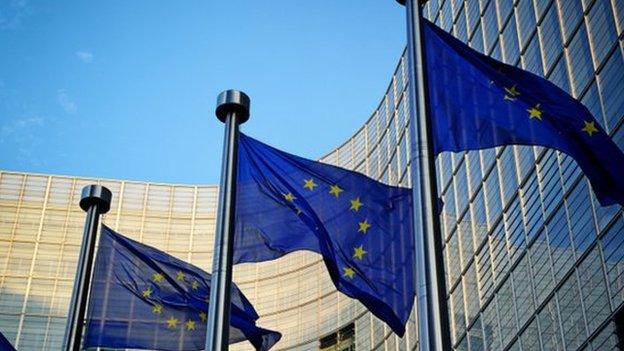Europe's Mr President
- Published
- comments
Sometime on Tuesday morning Jean-Claude Juncker will become the most powerful official in Europe.
Almost certainly he will get the backing of more than 376 MEPs and so win approval from the European Parliament. In November he will take over as President of the European Commission.
To millions of people this former prime minister of Luxembourg will be the face of the EU, at a time of rising discontent.
He will be Eurocrat-in-chief, presiding over a bureaucracy of 30,000 people. Although he will share power with a College of Commissioners he can shape the debate and initiate legislation.
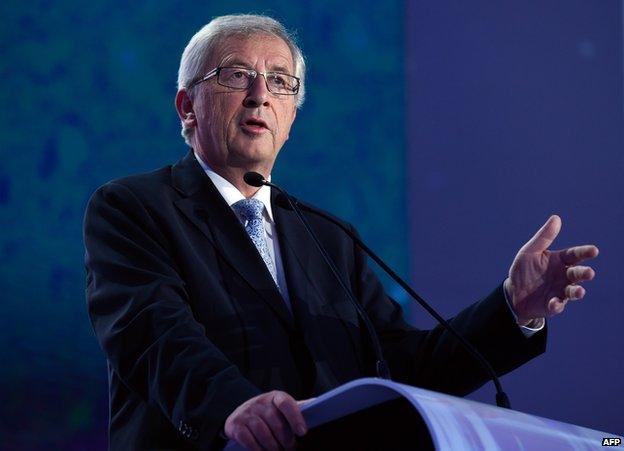
Jean-Claude Juncker is a veteran of Brussels deal-making
Jean-Claude Juncker is no easy persuader. He gives the impression of wanting to slip in by the side door, to escape attention. He bristles at the ever-present cameras, the shouted questions which have become a feature of public life.
He is a creature of the "dark, secret rooms", a master of the backroom deal. He has an encyclopaedic knowledge of Brussels's arcane ways and its treaties and legislation. He may struggle to sell Europe but last week, as he did the rounds of the parliamentary groupings, there were flashes of humour.
He will be a controversial appointment. David Cameron has ensured that. The British prime minister opposed a man whom he regarded as a "classic Brussels insider". Others too are uneasy that he was essentially elected by the Parliament, so marking a shift in power away from national parliaments.
One of his first tasks will be to hand out portfolios to the men and women put forward by national governments to be EU Commissioners. This will be an early test of whether David Cameron's opposition to his appointment has damaged Britain's chance of getting a top economic post. Downing Street would like the internal market or trade, energy or competition.
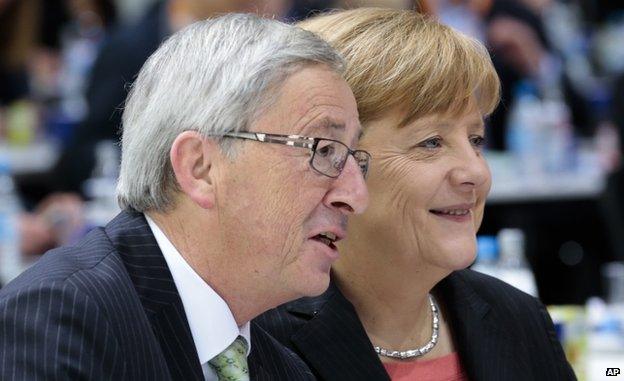
Mr Juncker has been a close ally of Germany's Angela Merkel during the eurozone crisis
There is clearly still some resentment at the British anti-Juncker campaign. Commissioner Viviane Reding, who acts as a kind of feisty gun-slinger for Juncker, said "I think the whole Luxembourgian country and all its population was offended because this was clearly playing the man and not playing the ball." She is one of the most active campaigners for more women Commissioners and there are signs that Mr Juncker has listened to her.
Early impressions are that Jean-Claude Juncker will be an emollient President. Last week, with the parliamentary groupings, he went out of his way to be engaging and non-confrontational, although some MEPs formed the impression he was telling them what they wanted to hear.
He will be open to negotiations with the UK over its membership of the EU. He says "I am not in principle saying that no kind of repatriation (of powers) can take place. If Westminster wants to recover competences, ok. If the others agree, it shall be done."
But it is far from clear he would open the door to treaty change which would allow the UK to renegotiate. And some areas - like the free movement of people - are clearly non-negotiable.
He clearly does not want Britain to exit the EU on his watch but, all the same, he is a believer in closer integration.
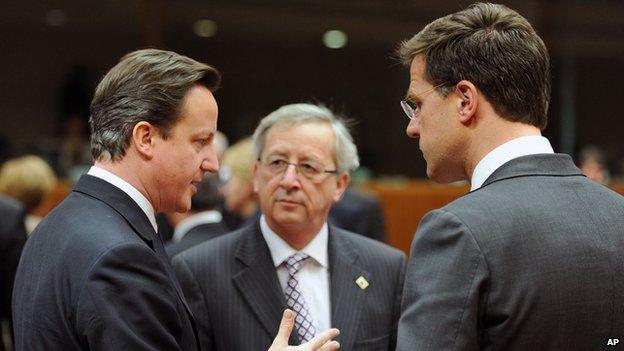
David Cameron has been an outspoken critic of Mr Juncker
He is deeply committed to the survival of the euro and was head of the Eurogroup - the eurozone finance ministers - at the height of the eurozone's troubles. He describes the crisis as seeing "the end of the world - we were looking into the abyss". He justified lying and deceiving the press at the time: "We had to repair a flying plane that was burning."
He is likely to not just defend the common currency but to extend deeper economic and monetary union. He is known to favour eurobonds - common debt - which has been rejected out of hand by Angela Merkel.
He is unlikely to adopt any radical changes as a result of a strong showing by Eurosceptics in the May elections. Already those results are fading from Brussels minds.
An indication of his thinking can be gauged by his comments ahead of the French referendum on an EU constitution in 2005. "If it's a yes," he said, "we will say 'on we go'. And if it is a no we will say 'we continue'." Some saw that as a way of saying popular opinion should not be allowed to shake the project.
There are reservations within the Commission about him and whether he will have the stamina to run such a large organisation. His reputation as a drinker goes before him. The German Finance Minister Wolfgang Schaeuble said Mr Juncker was no teetotaller "but I never experienced him drunk".
His skills are in finding compromises between the national governments, the European Parliament and the Commission.
As I have said in previous blogs, his priority will be to return the eurozone to economic health. "We need policies promoting growth," he said, "but not by running higher budget deficits."
One of his first tasks will be to referee the pressure coming from countries like France and Italy to have a more flexible interpretation of the budget rules. Already some northern countries have been expressing concern.
On Wednesday, at a summit in Brussels, attention will move to filling other top jobs like the President of the Council - who presides over the EU summits - and the High Representative for foreign affairs, the post currently held by Catherine Ashton. It will be a long bargaining session where geography, regions, politics, gender all come into play.
It is one of the realities of EU power: top posts are rarely decided by asking "who is the best woman or man to carry out a particular job?" Brussels works on the art of the compromise - and that is Jean-Claude Juncker's world.
- Published15 July 2014
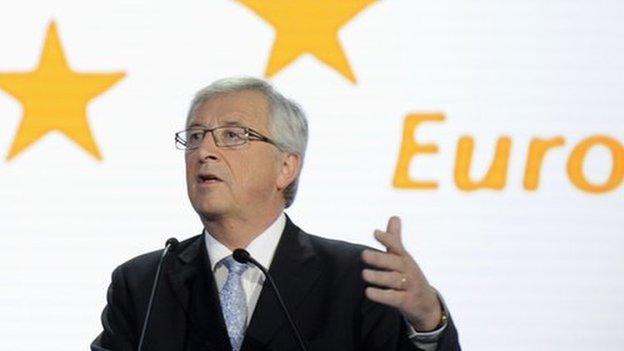
- Published24 June 2014
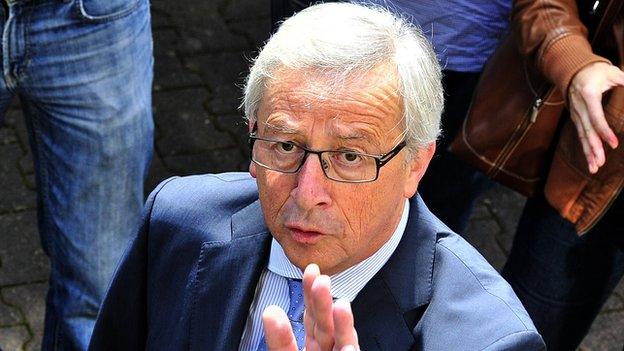
- Published10 July 2014
